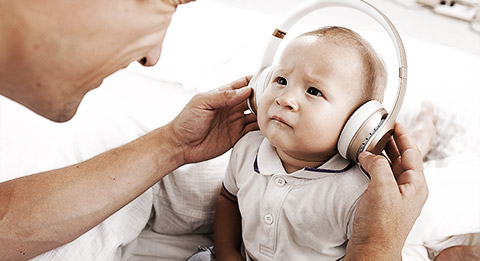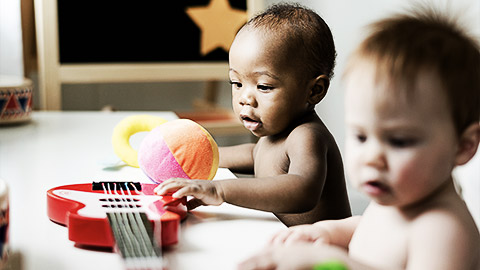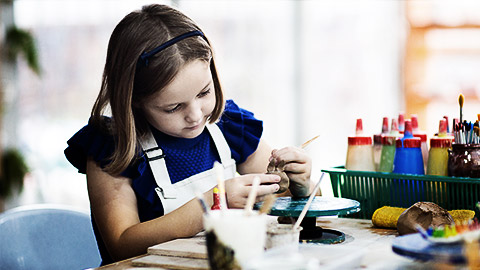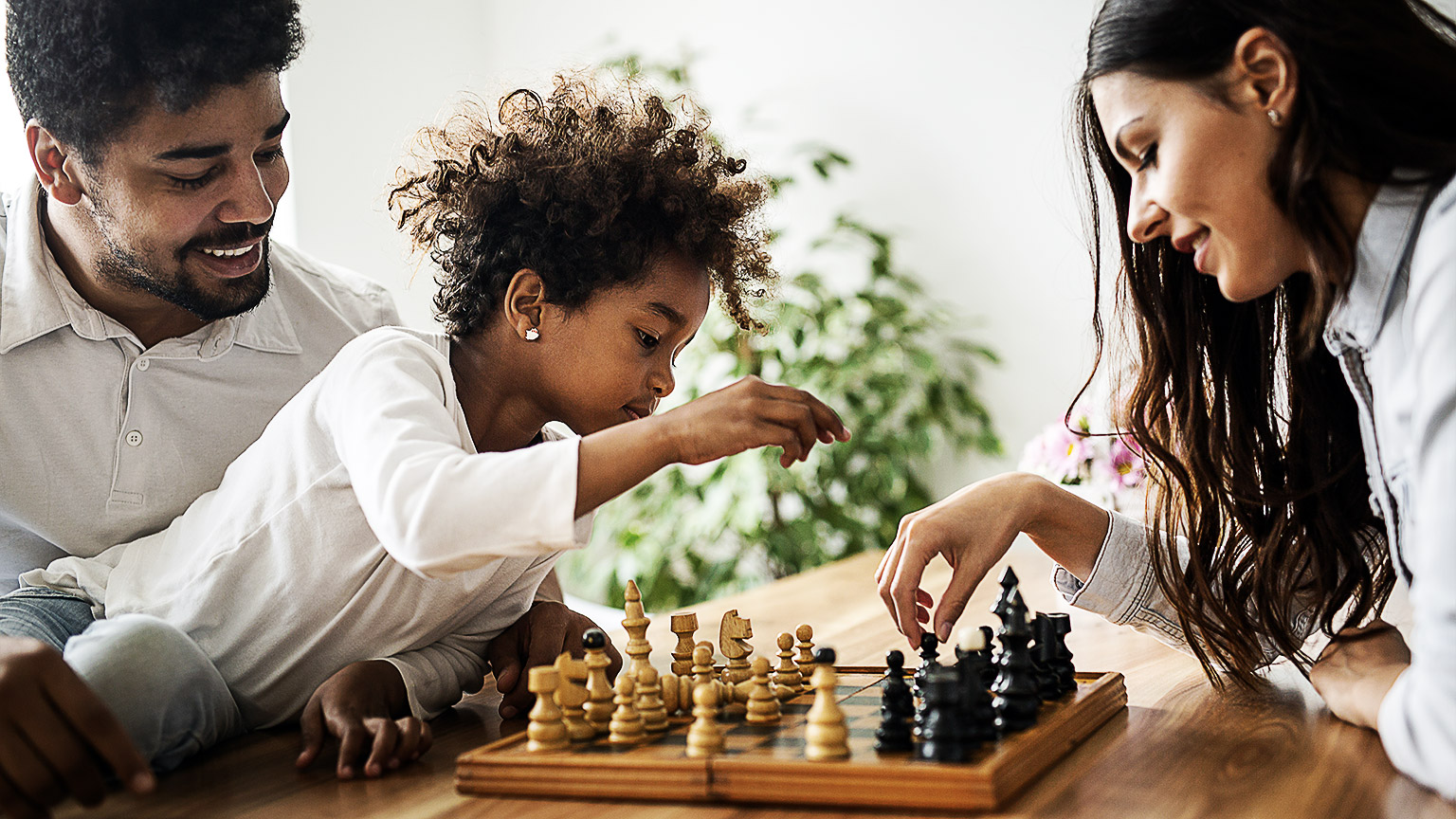A healthy and safe environment that stimulates and encourages a child’s physical, intellectual, and social growth should be the main goal of any childcare provider and their kaiako.
Each child has their own personality and responds to caregivers or experiences differently. Children may have outgoing, shy, or even-tempered natures like adults. Kaiako should try and understand a child’s personality and treat all children in a positive and caring manner that matches their specific personality. This is crucial to nurturing healthy emotional growth. By getting to know a child’s personality, kaiako can help them succeed by offering care, activities, and discipline in line with the child's needs.

Recent brain research indicates that birth to age three are the most important years in a child’s development.
These cards contain tips for you to use while working with the youngest of children.
Learning styles
Children learn in many ways. Each child has their own way of learning — some learn visually, others through touch, taste, and sound. Watch a group of children and you’ll understand at once what this means. One child will sit and listen patiently, another cannot wait to move and count beads. Another wants you to show her the answer over and over. Children also learn in different ways depending on their developmental stage. One thing we know is all children love to learn new things by exploring and discovering. Children love to solve problems during play and in daily activities.
Ages and stages
Depending upon the age of a child, their learning style and personality, a child will have different needs. The first five years are especially crucial for physical, intellectual, and social-emotional development.

In the first eighteen months after birth, an infant makes miraculous progress.
In this relatively short time span, an infant sees their world through their senses. Babies gather information through touch, taste, smell, sight, and sound. To help infants mature and learn, the caregiver should stimulate but not overwhelm them. The overall goal is not to “teach” your baby but to interact and explore her world with her. Older infants are on the move. They take great pleasure in discovering what they can do with their voice, hands, feet, and toes. Soon they practice rolling skills, crawling, walking, and other great physical adventures.
Through “the eyes of a child,” expand each title below (by clicking the label or (+) sign) to read what you might expect during the first eighteen months.
What I’m Like: My hands and feet fascinate me. I’ll laugh and coo at them and you. I’m alert for 15 minutes, maybe longer, at a time. I love to listen to you talk and read to me.
What I Need: Talk to me, feed me, and sing to me. My favorite songs are lullabies. Cuddle me. I need fresh air, a ride in a stroller. Give me things to pull and teethe on.
What I’m Like: I may be able to roll over and sit with support. I can hold my own toys. I babble and am alert for two hours at a time. I can eat most baby food. Put toys just out of my reach and I will try to reach them. I like to see what I look like and what I am doing.
What I Need: Make sure I’m safe as I’m learning to crawl. I need happy sounds, and I like to be near you. Dance with me, tickle me, and tell me about the world you see.
What I’m Like: I’m busy! I like to explore everything! I crawl, sit, pull on furniture, grasp objects, and understand simple commands. I like to be with other babies, and I react to their happiness and sadness.
What I Need: I need locks on cabinets with medicines, cleaners, or other dangerous things. Put away small sharp objects. I need touches, nutritious food, and educational toys to keep me busy.
What I’m Like: I may be able to pull myself up and sidestep around furniture. I may begin walking. I make lots of sounds and say “Mama” and “Dada.” I’m curious about flowers, ants, grass, stones, bugs, and dirt. I like to get messy, ’cause that’s how I learn. My fingers want to touch everything. I like to play near others close to my age but not always with them. If I’m walking, please walk at my pace.
What I Need: I need lots of cuddling and encouragement. I need a safe place to move around as I will be getting into anything I can get my hands on. Read to me again and again. Sing our favorite songs. Give me freedom to do most things—until I need help. So please stay near.
What I’m Like: I like to eat with a spoon, even if I spill. And I will spill, spill, spill. I will explore everything high and low, so please keep me safe. I may have temper tantrums because I have no other way of expressing my feelings or frustrations. Sometimes I’m fearful and cling to you. I like to have evening routines: music, story, and bath time. I like balls, blocks, pull toys, push toys, take apart toys, put together toys, and cuddles. Sometimes I say “No” and mean it. By eighteen months I can walk well by myself, although I fall a lot. I may jump. I say lots of words, especially the word “mine”—because everything is mine! I like it when we play outside or go to a park. I like being with other children. I try to take off my shoes and socks. I like to build with blocks.
What I Need: Let me touch things. Let me try new things with your help if I need it. I need firm limits and consistency. Please give me praise. The more you talk with me, the earlier I will tell you how I feel and what I need. I need you to observe me and to understand why I’m upset or mad. I need your understanding and patience. I want a routine. I need you to not mind the mess I sometimes make. I need you to say I’m sorry if you made a mistake. And please read to me over and over again!
Toddlers
The Toddler's Creed

If I want it, it’s mine. If I give it to you and change my mind later, it’s mine. If I take it away from you, it’s mine. If it’s mine it will never belong to anybody else, no matter what. If we are building something together, all the pieces are mine. If it looks just like mine, it’s mine.

During the next stage of life, a child is beginning to define their identity.
During the toddler years, children get into everything, so you need to do your best to keep the children in your care safe from a potential accident. While keeping children as safe as possible, accidents do happen even to the most careful kaiako and children.
Click the (+) sign to open the item below and read about the personality traits of toddlers.
What I’m Like: I am loving, affectionate, and responsive to others. I feel sorry or sad when others my age are upset. I may even like to please you. I don’t need you so close for protection, but please don’t go too far away. I may do the exact opposite of what you want. I may be rigid, not willing to wait or give in. I may even be bossy. “Me” is one of my favorite words. I may have fears, especially of sounds, separation, moving household objects, or that big dog.
What I Need: I need to continue exploring the world, down the block, the parks, library, and stores, etc. I like my routines. If you have to change them, do so slowly. I need you to notice what I do well and PRAISE me. Give me two OK choices to distract me when I begin to say “No.” I need you to be in control and make decisions when I’m unable to do so. I do better when you plan ahead. Be firm with me about the rules, but calm when I forget or disagree. And please be patient because I am doing my best to please you, even though I may not act that way.

During the preschool years, a child will be incredibly busy. Cutting, pasting, painting, and singing are all daily activities.
Select the (+) sign below to learn about the characteristics of a child between ages three and five.
What I’m Like: Watch out! I am charged with physical energy. I do things on my own terms. My mind is a sponge. Reading and socializing are essential in getting me ready for school. I like to pretend a lot and enjoy scribbling on everything. I am full of questions, many of which are “Why?” I become fairly reliable about using the potty. Playing and trying new things out are how I learn. Sometimes I like to share. I begin to listen more and begin to understand how to solve problems for myself.
What I Need: I want to know about everything and understand words, and when encouraged, I will use words instead of grabbing, crying, or pushing. Play with me, sing to me, and let’s pretend!
What I’m Like: I'm in an active stage, running, hopping, jumping, and climbing. I love to question "Why?" and "How?" I'm interested in numbers and the world around me. I enjoy playing with my friends. I like to be creative with my drawings, and I may like my pictures to be different from everyone else's. I may want to be just like my older sister or brother. I am proud that I am so BIG now!
What I Need: I need to explore, to try out, and to test limits. Giving me room to grow doesn't mean letting me do everything. I need reasonable limits set for my own protection and for others. Let me know clearly what is or isn't to be expected. I need to learn to give and take and play well with others. I need to be read to, talked to, and listened to. I need to be given choices and to learn things in my own way. Label objects and describe what's happening to me so I can learn new words. I need to be encouraged to use words instead of grabbing, crying, or pushing. Play with me, sing to me, and let’s pretend!
Activity – Identify the stages
Identify what you think infants, toddlers, and young children will be exhibiting or doing at each age stage, for each of the development domains.
Download the Excel spreadsheet as a template to work through this activity. The spreadsheet contains three tabs at the bottom, so there is a worksheet for each age group. When you are done, take a screenshot of each worksheet and create a journal post with your screenshots and any reflection you would like to share. Make the journal post available for the class to see. You may wish to view submissions from your classmates and comment on them.

